|
Empowering Island Communities:
The Caribbean Coconut Product Training
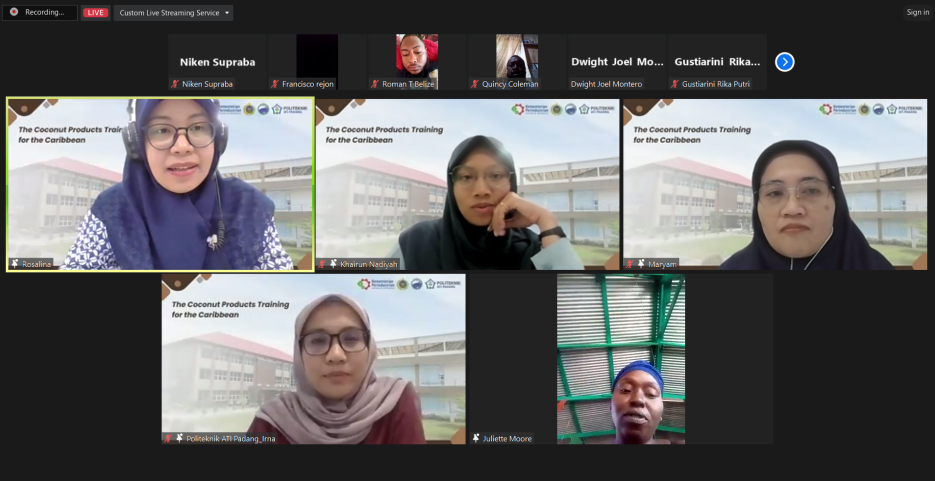
The Caribbean Coconut Product Training Program is a collaborative endeavor supported by Non-Aligned Movement Centre for South-South Technical Cooperation (NAM CSSTC), the Ministry of Foreign Affairs and the Ministry of Industry, with expertise contributions from Politeknik ATI Padang which was held on September 11 and 12, 2023. During the program, Diar Nurbintoro, the Director of the NAM CSSTC, delivered a comprehensive speech underscoring the significance of coconuts in our lives, often referred to as the "tree of life" due to its vital role in survival. Coconuts offer versatile possibilities for industrialization, producing items such as oil and food with the potential for regional and international consumption. The diverse applications of coconut-based products span the realms of food, cosmetics, and even furniture.
The event was attended by 35 participants from Barbados, Belize, St. Lucia, Grenada, Trinidad & Tobago. The eventís primary objectives of this event are to impart knowledge on coconut processing and its wide-ranging applications, both for personal and professional benefit. Furthermore, the program aims to introduce the potential of coconut-based biofuels, cooking oils, virgin coconut oil (VCO), cosmetics, and address employment rate reduction.
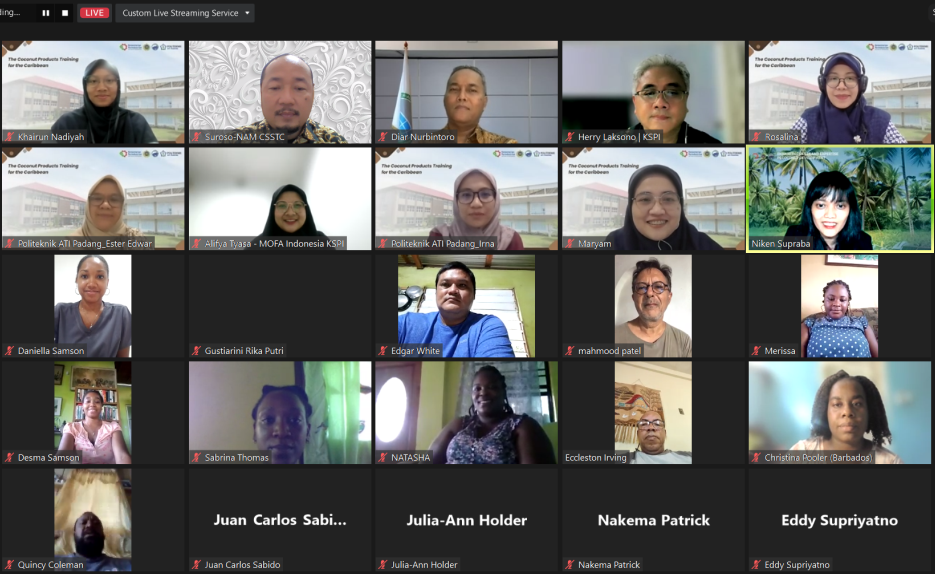
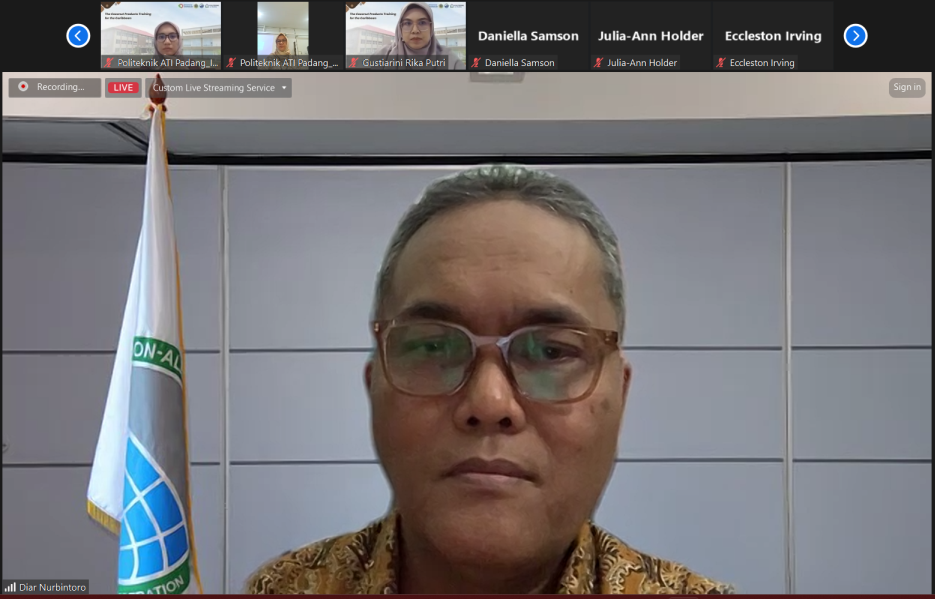
The initial session focuses on introducing and diversifying coconuts into Agro-industry. Experts illuminate the unique characteristics of coconut trees and their fruits, highlighting the various applications of each part of the tree. Building a coconut Agro-industry requires thorough analysis, including situational, technical, economic, social, management, market, and financial considerations. An interesting fact is that scouting in Indonesia has a flag with a coconut shoot symbol.
The second session delves into "nata de coco," a product originating from the Philippines and first introduced to Indonesia in 1975. Nata de coco is a bacterial cellulose with a slightly chewy texture, offering numerous benefits such as high fiber content and low-calorie properties. It can be used in desserts and other non-food products. While producing nata de coco is not overly complex, it does require patience, taking around 7 to 8 days to yield results. Preferred packaging for nata de coco includes polyester in the form of non-aluminum foil pouches, as well as plastic cups, pails, pouches, and plastic pillows.
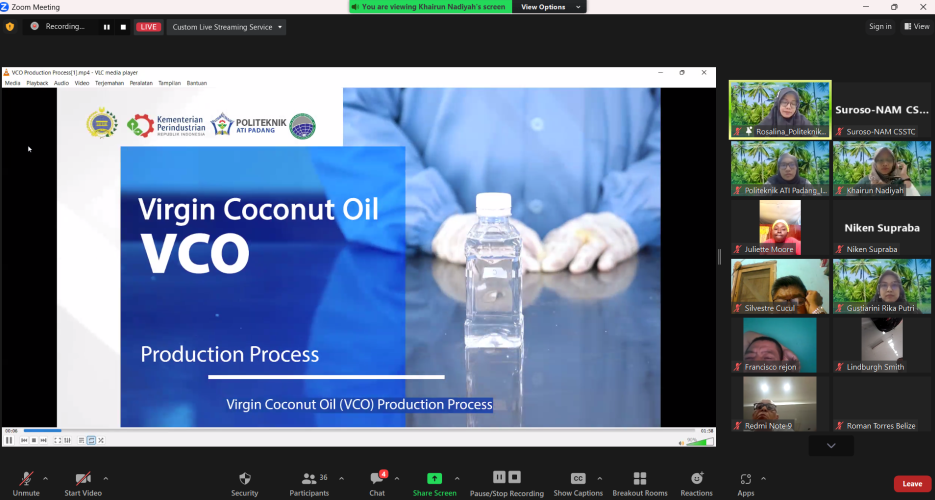
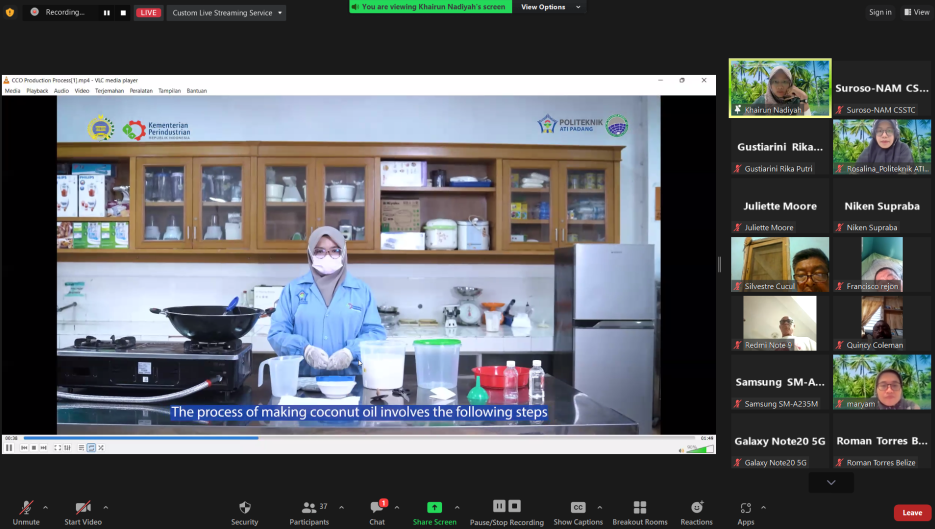
The third session, on the second day, focused on Virgin Coconut Oil (VCO), derived from coconut meat and rich in saturated fatty acids that support health and body maintenance. To ensure high-quality VCO, producers must prioritize freshness and maintain quality checks throughout the production process. Several methods can be employed to produce VCO, including gradual heating, enzymatic processes, oil fishing, fermentation, centrifugation, and the wet mill method. Each method differs in technique but yields the same result: VCO. The advantages of VCO production include cost-effectiveness, simplicity in processing, and minimal energy consumption as it does not require fuel. Tools needed for VCO production are uncomplicated and often found in everyday use. Preserving VCO is straightforward; clean, used bottles or jars suffice for storage.
In the fourth session, Coconut Cooking Oil (CCO) takes center stage as a healthier alternative to palm oil. CCO contains fat, but it differs from animal fat, making it a more health-conscious choice. The session details the straightforward process of CCO production, with experts demonstrating the manufacturing process through videos. Packaging CCO is simple and follows a similar approach to other coconut products.
The training program fostered active participation, with participants engaging in question-and-answer sessions, facilitated by expert guidance.
|

